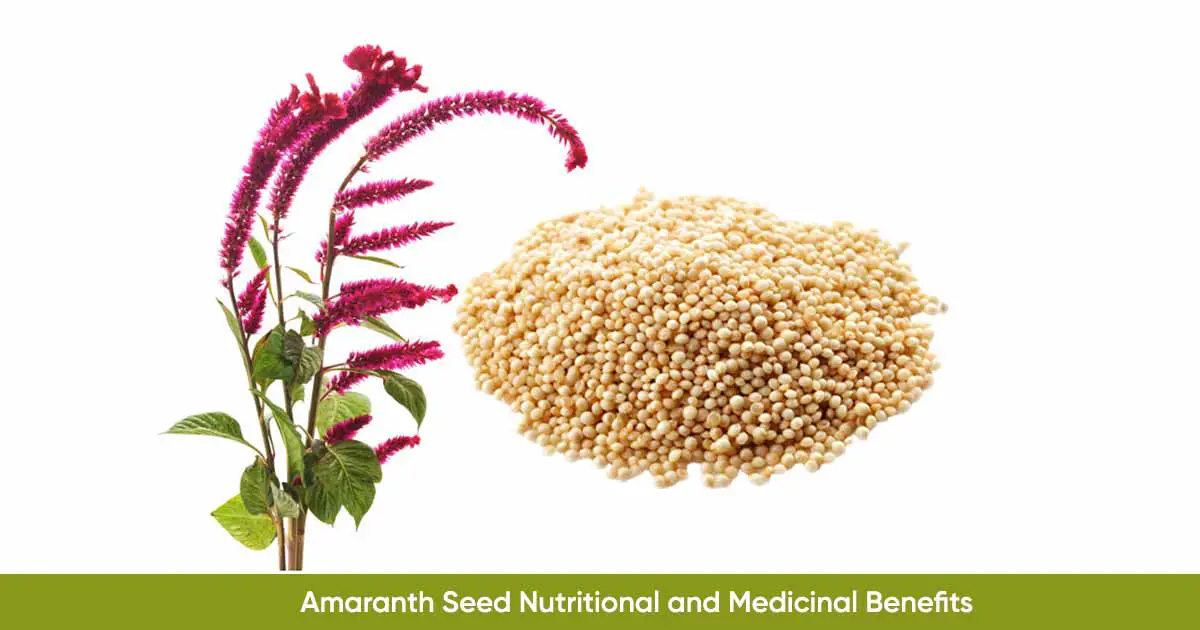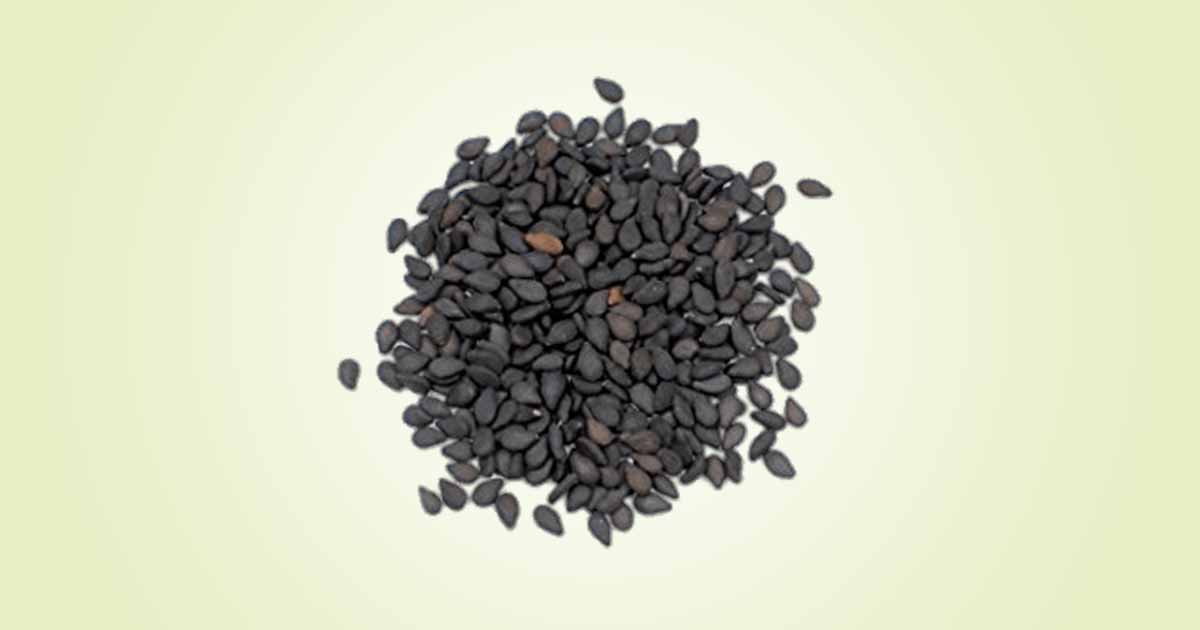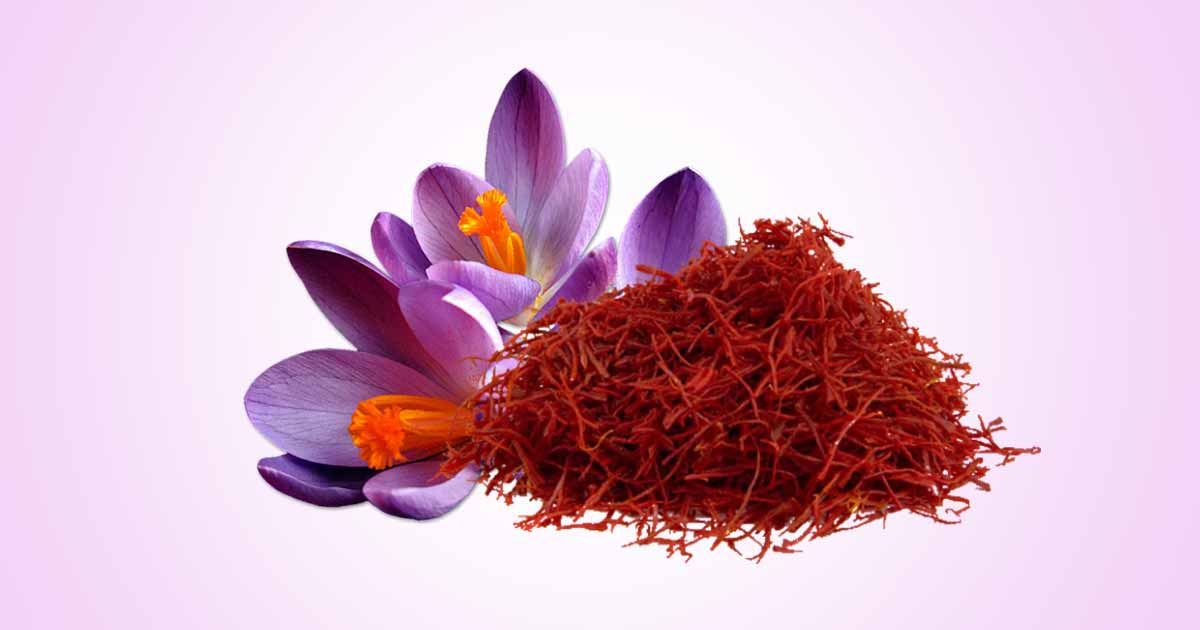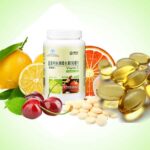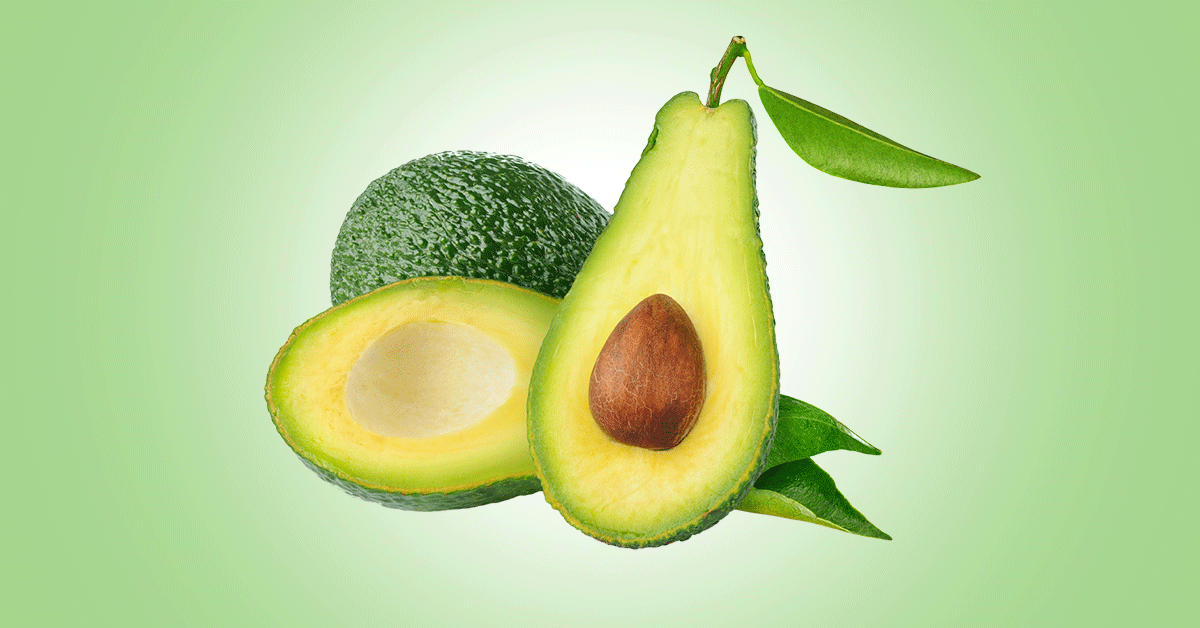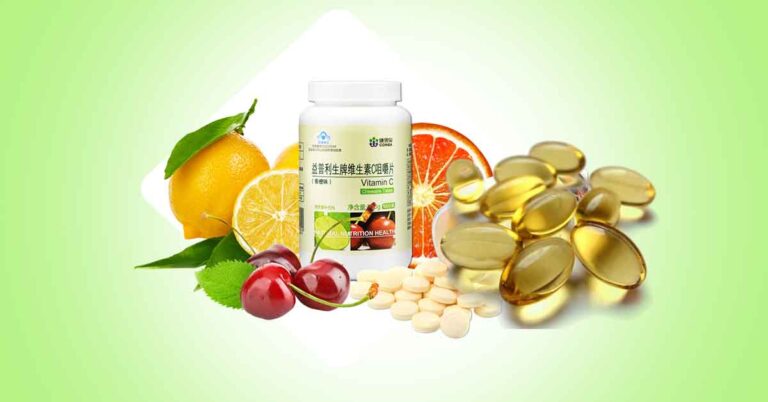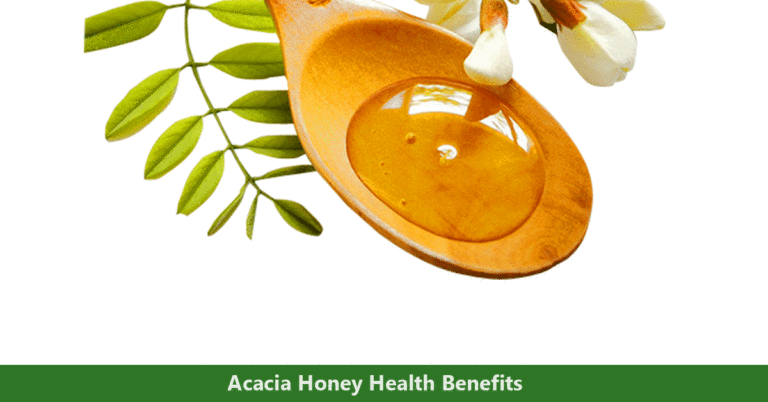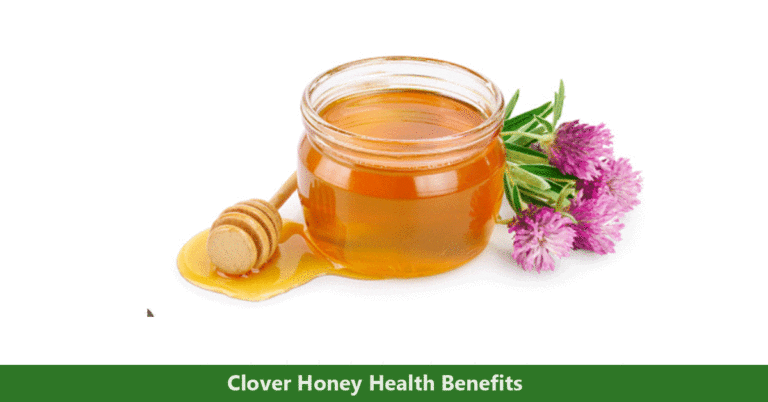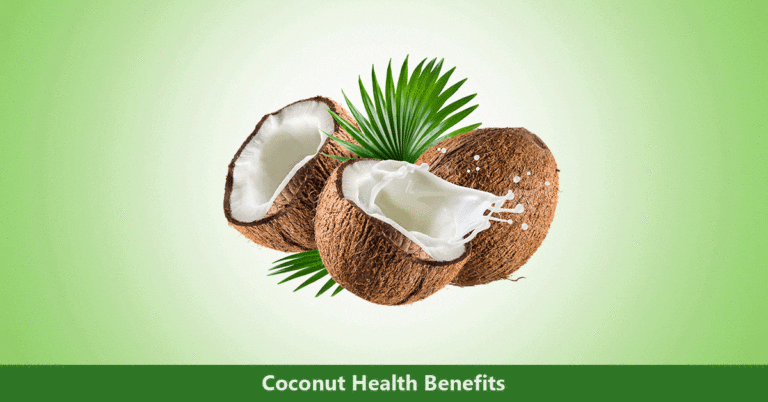Amaranth seed or grain is regarded as a gluten-free pseudo cereal, and has similarities to other cereals. The amaranth, a dicotyledon, is from the Amaranthaceae family. Amaranth seeds and leaves has important nutritional and health benefits.
The amaranth leaves are utilized in cooking and dishes, and has high protein, minerals (potassium, iron, magnesium, and calcium) and vitamin A and vitamin C. The grain has similar starch than other important cereals, and more oils than other grains.
Amaranth is mostly grown in Mexico, China, Peru, Guatemala, Peru, India, and Kenya. Though there are many species of amaranthus, the widely grown edible ones are Amaranthus hypochondriacus, A. cruentus, and A. caudatus.
Amaranth grain can be black, coffee, gold, pale yellow, or pink depending on the protein content. It is considered a “super food” as it is a gluten-free pseudo cereal as it contains high proteins, amino acids, dietary fiber, calcium and other minerals and vitamins.
Health benefits of amaranth seed include antioxidant, anti-inflammatory, anti-diabetic effects. It also prevents constipation, osteoporosis, cholesterol build-up, and good for people with celiac disease since it is gluten-free.
The seed has potential use in cosmetic industries, and biodegradable plastics. The pigment is also used as natural dyes.
Composition of Amaranth Seed
Amaranth grain has high protein value (about 13 to 19%), dietary fiber, carbohydrates, amino acids, lipids (omega-3 and omega-6), calcium, squalene, tocopherols. The main unsaturated fatty acids in the seed oil are linoleic acid, oleic acid, and linolenic acid. Palmitic and stearic acids are also present.
Nutritional Composition
| Minerals | Quantity |
| Phosphorus | 557 mg |
| Potassium | 508 mg |
| Magnesium | 248 mg |
| Calcium | 159 mg |
| Iron | 7.61 mg |
| Sodium | 4 mg |
| Manganese | 3.33 mg |
| Zinc | 2.87 mg |
| Selenium | 18.7 mcg |
| Vitamins | Quantity |
| Ascorbic acid | 4.20 mg |
| Choline | 69.8 mg |
| Betaine | 67.6 mg |
| Riboflavin | 0.20 mg |
| Pantothenic acid | 1.46 mg |
| Niacin | 0.92 mg |
| Folate | 82 mcg |
| Thiamine | 0.12 mg |
| Lutein | 28 mcg |
| Vitamin E (alpha-tocopherol) (beta-tocopherol) (delta-tocopherol) | 1.19 mg 0.96 mg 0.69 mg |
| Vitamin B-6 | 0.59 mg |
| Vitamin A | 2 IU |
Bioactive Compounds
- Natural pigments, betalains: amaranthine, isoamaranthine, betanin, isobetanin, gompherin, celosianin, iresinine, 3-metoxitiramin-betaxanthin, (S)-tryptophan-betaxanthin, and acylated gompherin.
- Amino acids: Glutamic acid, arginine, glycine, aspartic acid, serine, leucine, are the most abundant amino acids. Others are proline, phenylalanyne, valine, alanine, isoleucine, tyrosine, isoleucine, threonine, histidine, cystine.
- Phenolic compounds: quercetin, rutin, catechin, nicotiflorin, isoquercitrin, p-Coumaric acid, ferulic acid, gallic acid, anthocyanins.
- Phytosterols: campesterol, β-sitosterol, stigmasterol, clerosterol, Δ5-avenasterol, cholesterol, bassicasterol, campestanol, sitosterol.
- Peptides: lunasin
- Tocopherols: α-, β-, γ- and δ-tocopherol
- Squalene: It has more squalene than olive oil.
Health Benefits of Amaranth Seeds
Amaranth seed has antioxidant, anti-inflammatory, antibacterial, and anti-cancerogenic activities.
Antioxidant property:
Amaranth seed contains natural water-soluble pigments called betalains, just as beet. Betalains have antioxidant property and prevent inhibit lipid peroxidation. Polyphenols, tocopherols, squalene, and ascorbic acids are other powerful antioxidant compounds in amaranth.
Antioxidants lowers the risk of cardiovascular diseases, cancer, and ageing.
Anticancer effect:
Amaranth seed contains lunasin, a bioactive peptide. Lunasin is higher in the glutelin fraction (3 μg/g), but also in the albumin, prolamin and globulin.
Lunasin may inhibit the transformation of NIH-3T3 cells to cancerous nodules in vitro (Maldonado-Cervante et al.). The glutein extract, digested with trypsin, was also tested for anticancer activity against HeLa cells.
Tocopherols and tocotrienols in the seed, have antitumor activity
Anti-inflammatory activity:
Both ether and ethanolic extracts of A. spinosus exhibit anti-inflammatory activity on carrageenan induced paw odema rat model (Manik Baral et al., 2010).
Phytosterols, alkaloid, flavonoids, and the betalains pigments are the anti-inflammatory compounds found in the amaranth seed. The mechanism of action could be through activation of bioactive peptides, reducing the expression of several pro-inflammatory markers (Montoya–Rodríguez A, et al., 2014).
Gluten-free:
Amaranth seed has an advantage of being a gluten-free pseudo cereal. It is a healthier option to foods such as wheat that contains gluten. People with celiac disease, allergies, and non-celiac gluten sensitivity (NCGS) who acquire gluten intolerance have problems with gluten diets. Amaranth seed is a healthier source of protein for such group of people.
People with celiac disease cannot digest gluten in cereals as they have severe immunological reaction which cause them difficulties in absorbing nutrients. This is as a result of extended damage in their intestinal villi leading to chronic fatigue, diarrheas, poor memory, and joint pain.
Cholesterol lowering:
Amaranth oil from the seed affect cholesterol metabolism, reduce total and bad cholesterol (LDL), very low-density lipoprotein (VLDL), and improves the good HDL cholesterol when tested in animal models. It also improved the excretion of neutral sterols and the bile acid ursodeoxycholate (Berger et al., 2003).
Squalene, a precursor of steroids and terpenoids, helps to lower cholesterol and triglyceride levels. It also improves the increase of 7α-hydroxylase that breaks the hepatic cholesterol into bile acids.
Improves bone health:
Amaranth grain contains more calcium than most seeds. Calcium helps in bone mineralization, and maintenance, and also prevents osteoporosis. Phosphorus is also a key part of bones, teeth, and the cell membranes.
Anti-diabetic effect:
Amaranth seed contains a good amount of manganese, a mineral that may play a role in glucose homeostasis and renal function. It was found that there are lowered levels of manganese in diabetic patients compared to non-diabetic individuals.
Amaranth grain has a lower glycemic index when compared to wheat, and rice diet in non-insulin dependent diabetic patients (A Chaturvedi et al., 1997). Amaranth grain and oil have been reported to have anti-oxidative effect on streptozotocin-induced diabetic rats.
Prevent duodenal ulcer:
Amaranth oil supplementation when used with standard anti-H. pylori medication reduced accumulation of HNE-histidine adducts in gastric mucosa and improves heart rate variability in duodenal peptic ulcer patients (Andriy Cherkas et al., 2018)
Prevents constipation:
Starch in the seed binds water, while the insoluble fiber which is present in higher quantity helps to improve bowel movement and prevent constipation.
Anthelmintic activity:
Aqueous extract showed anthelmintic activity against Tubifex tubifex in dose‐dependent manner, comparable to standard drug, Piperazine citrate.
Side Effects
Amaranth seed contains trypsin and chymotrypsin inhibitors, phytates, and saponins [Grajeta 1997]. Heating processes such as boiling, drying can reduce the antinutrients.
References
- https://innovareacademics.in/journal/ijcpr/Issues/Vol2Issue4/236.pdf
- https://pubmed.ncbi.nlm.nih.gov/29251014/
- https://www.researchgate.net/publication/348138296_THE_AMARANTH_SEEDS_AS_A_SOURCE_OF_NUTRIENTS_AND_BIOACTIVE_SUBSTANCES_IN_HUMAN_DIET
- https://pubmed.ncbi.nlm.nih.gov/12690910/
- https://medcraveonline.com/JAPLR/JAPLR-07-00288.pdf
- https://pubmed.ncbi.nlm.nih.gov/9201751/

